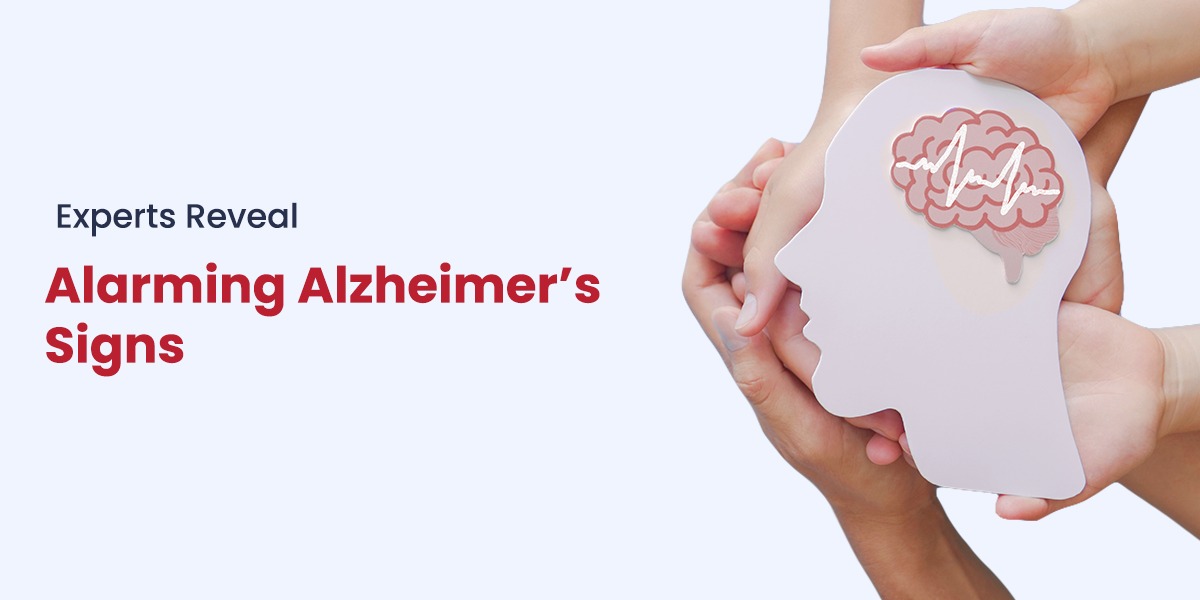Could You Be at Risk for Alzheimer’s? Here’s What Experts Are Saying

Alzheimer’s is a neurological disorder that affects millions of people worldwide. It is one of the leading causes of dementia that affects people above the age of sixty. While age is one factor, some aspects can influence our chances of developing this disease. Though there is no cure for Alzheimer’s, it can be managed with the help of some medicines and therapies. In this blog, we’ll explore more insights on the disease like early signs, risk factors and how to deal with it.
What exactly is Alzheimer’s Disease?
Alzheimer’s is a progressive disease that causes brain cells to die because of abnormal protein buildup in the brain. This blocks the communication between the nerve cells resulting in symptoms like memory loss, confusion and even difficulty in daily activities. It impacts an individual’s life in greater aspects. It generally develops in the late 60s, though some people start experiencing its symptoms in their 40s or 50s.
Alzheimer’s disease is categorised into mild, moderate and severe or early, middle and late. Studies state that factors like genetics, environment and lifestyles might be strong reasons for the rise in the disease.
Early Signs of Alzheimer’s
The signs of Alzheimer’s vary from person to person. But recognising it as early as possible could help you effectively manage its progression. Let’s take a look at some common Alzheimer’s disease symptoms:
Memory Loss
One of the most prominent Alzheimer’s disease symptoms is memory loss. An individual forgets information more often, even recently learnt details. This might include failing to recall dates or recent events or repeatedly asking the same questions.
Difficulty with Daily Tasks
An individual suffering from Alzheimer’s can face problems completing regular tasks or house chores. They might feel confused about accomplishing the work they otherwise would have done easily. This includes tasks such as playing a game, following a recipe, managing finances or travelling to a familiar place.
Disorientation
People may start losing track of time or be confused between dates and times of the year. They also tend to get lost in familiar places, finding it difficult to track their way back. Some of them also become sleep-deprived.
Difficulty In Communication
Difficulty in communication is another Alzheimer’s disease symptom which is disturbing. A person can find it difficult to express his thoughts in the correct words.
Poor Judgement
An individual suffering from this disease might not be able to make proper judgments. They might have difficulty in making plans and executing them on time.
Decreased Problem-Solving Skills
Alzheimer’s also impacts a person’s problem-solving abilities. The sufferer might find it hard to plan, organise or manage a task that he/she did effortlessly earlier. They also lose focus on things that matter or might not be able to pay attention to important details.
Changes in Mood and Behaviour
A person suffering from Alzheimer’s also exhibits mood changes. They sometimes become upset, anxious, depressed or confused with situations easily.
Suggested Read: Alzheimer’s Disease: Causes, Symptoms, Stages and Treatment Options
Risk Factors Triggering Alzheimer’s
The risk factors that cause Alzheimer’s disease are numerous. Let’s see some common causes of Alzheimer’s disease:
Age
Age is one of the most common causes of Alzheimer’s disease. It has been found that 1 out of 10 people above the age of 65 has a risk of developing this disease. Researchers also say the risk is not limited to old age only, in some cases, the early onset of the disease might affect people in their 30s too.
Genetics
Genetics play a pivotal role in shaping our health. Researchers say that individuals with a family history of Alzheimer’s have an increased risk of developing the disease. But this doesn’t mean a person with no family history will not develop this disease.
Gender
It has been found that women are potentially at more risk of Alzheimer’s compared to men. Numerous factors like longevity, genes, strong immunity and enzyme levels put females at a higher risk.
Physical and Mental Stimulation
Being physically and mentally active increases blood flow to the brain which enhances the growth of new brain cells.
Sleep
Poor sleeping patterns or sleep deprivation have been linked to an increased risk of Alzheimer’s. Lack of sleep builds up toxins in the brain that later contribute to the disease.
Diet
Failing to follow a healthy diet also increases the risk of Alzheimer’s. Not having food on time and intake of processed food with added sugar and saturated fats can be muted contributors towards the disease.
How to Cope With Alzheimer’s
Though there is no surefire Alzheimer’s disease treatment available, one can manage the disease by adopting some healthy habits like having a wholesome and balanced diet and taking proper naps. Also, focusing on physical and mental health by indulging in easy exercises and mind-engaging activities like reading, and puzzles can help tackle the disease. Participating in social activities also goes a long way in managing the condition.
Moreover, consider visiting the best neurologist in Kanpur and Lucknow at Regency Healthcare if you or your loved ones experience the symptoms.

 Call-an-Ambulance
Call-an-Ambulance



